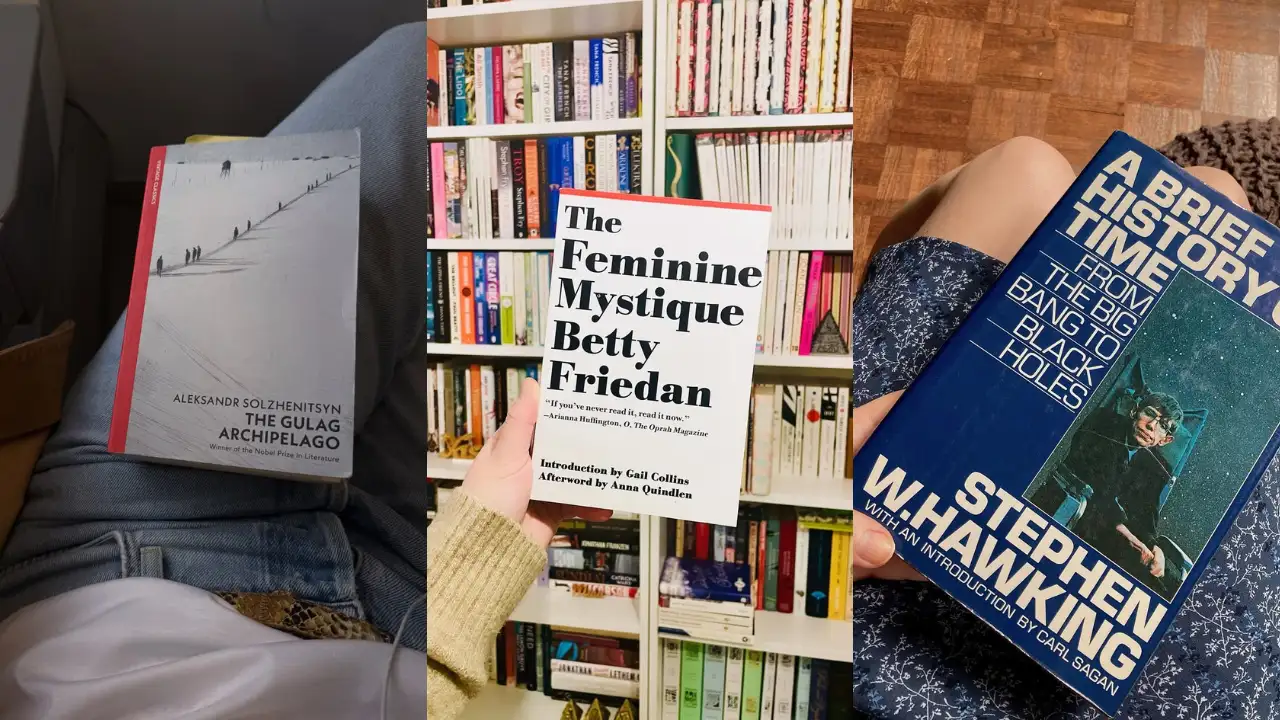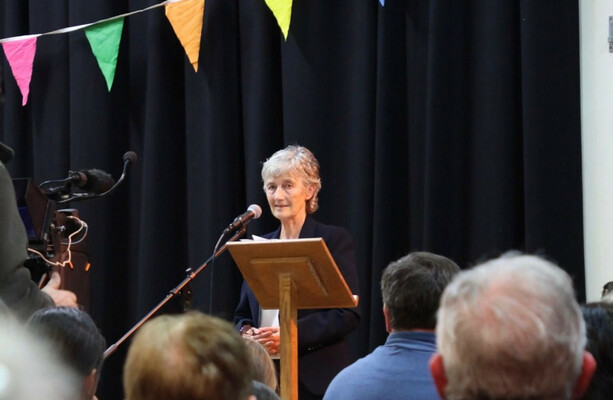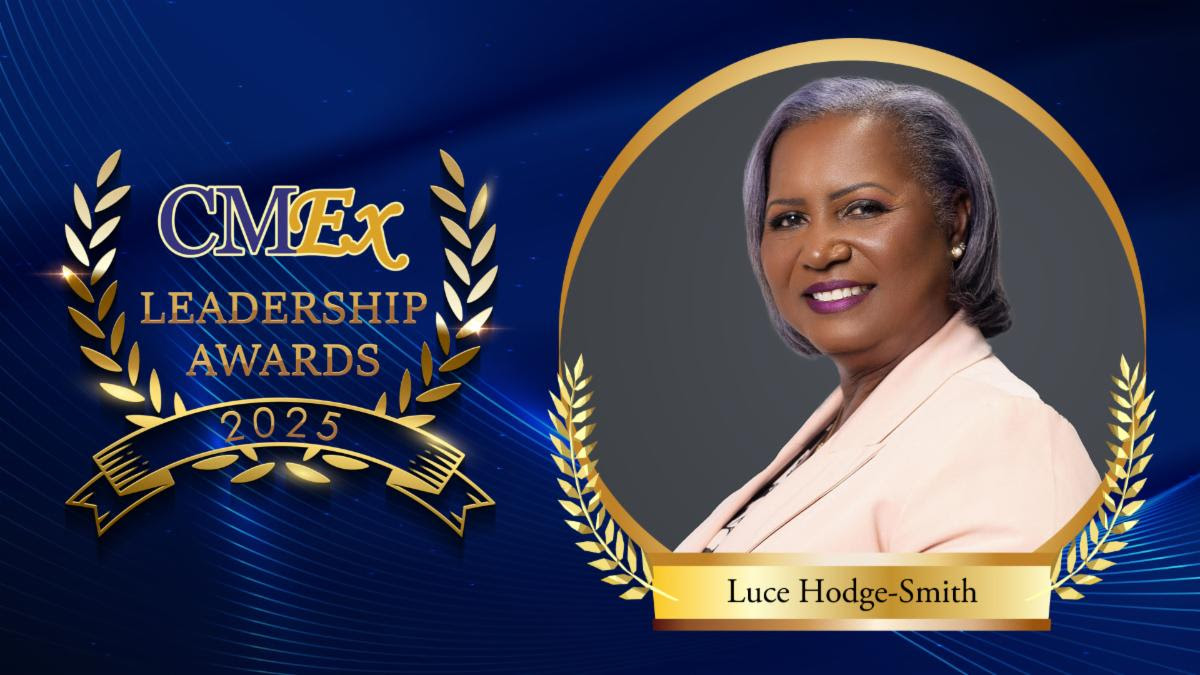Copyright timesnownews

Some books don't just tell stories. They spark revolutions, challenge empires, and fundamentally alter how millions of people think, believe, and live. Throughout history, certain writings have possessed an almost supernatural power to shift the course of civilisation itself. These aren't simply bestsellers or literary masterpieces. They're cultural earthquakes that cracked open old certainties and built new worlds from the rubble. From ancient philosophies that still govern nations to scientific revelations that upended our place in the cosmos, these ten books didn't just capture their moments. They created new ones. What makes them extraordinary isn't their age or fame, but their continued ability to challenge readers today. Each page carries ideas so potent they've survived centuries of controversy, censorship, and cultural upheaval. Open any of these works, and you're not just reading history. You're confronting the very ideas that constructed the modern world, ideas that might just reconstruct your understanding of it too. Also Read: 10 Books So Powerful They’ll Change the Way You See Yourself Forever 1. The Second Sex by Simone de Beauvoir This groundbreaking work explores what it means to be a woman in a world shaped by men. Simone de Beauvoir examines history, culture, and philosophy to uncover how women have been treated as the “other.” She reveals how social roles and expectations limit female freedom and identity. Her arguments expose how gender is created by society rather than biology. With courage and intellect, de Beauvoir opened doors for equality and independence, making this book a foundation for modern feminism and personal liberation. 2. Silent Spring by Rachel Carson Rachel Carson’s ‘Silent Spring’ tells a powerful story about how humanity’s careless use of chemicals harms the planet. Through vivid and poetic language, she exposes the dangers of pesticides like DDT, showing how they poison birds, fish, and even humans. Carson connects scientific facts with emotional storytelling, awakening readers to the cost of technological progress. Her courage in confronting powerful industries inspired the environmental movement. The book transformed public understanding of ecology, proving that one voice can defend nature and inspire global awareness. 3. The Communist Manifesto by Karl Marx and Friedrich Engels Written during the upheaval of industrial Europe, ‘The Communist Manifesto’ tells the story of workers struggling against economic systems that exploit them. Karl Marx and Friedrich Engels present history as a conflict between classes, envisioning a world where equality replaces oppression. Their bold ideas challenged existing power structures and gave voice to the working class. The manifesto’s language is urgent and revolutionary, calling people to action. Its influence reshaped politics, labour rights, and global movements, leaving an enduring mark on history and human thought. 4. The Diary of a Young Girl by Anne Frank Anne Frank’s diary captures her life in hiding during World War II with rare honesty and warmth. Trapped in a secret annexe with her family, she describes the fear of discovery, the daily tensions, and her dreams for a better world. Her words reveal both a teenager’s growing self-awareness and a powerful resilience against despair. Though her story ends in tragedy, her voice continues to inspire hope. The diary stands as a universal reminder of courage, humanity, and faith in goodness amid cruelty. 5. The Interpretation of Dreams by Sigmund Freud Sigmund Freud’s ‘The Interpretation of Dreams’ opens a new world inside the human mind. Through analysis of his own dreams and those of patients, he reveals how hidden desires, fears, and memories shape our behaviour. Freud argues that dreams are meaningful pathways to the unconscious, not random images. His exploration connects science and emotion, showing that understanding dreams means understanding ourselves. The book transformed psychology, giving people a new language for introspection. It remains one of the most influential works in modern thought. 6. The Feminine Mystique by Betty Friedan Betty Friedan’s ‘The Feminine Mystique’ tells the untold story of women in postwar America who seemed to have perfect lives yet felt unfulfilled. Through careful research and interviews, Friedan exposes the “problem that has no name,” revealing how social norms trapped women in domestic roles. She challenges the belief that happiness depends on marriage or motherhood. The book sparked the second wave of feminism, empowering women to seek purpose beyond conformity. Friedan’s honest voice continues to inspire self-discovery, equality, and individual freedom. 7. The Gulag Archipelago by Aleksandr Solzhenitsyn Aleksandr Solzhenitsyn’s ‘The Gulag Archipelago’ exposes the brutal truth of Soviet labour camps through firsthand experience and testimony. He reveals the cruelty, fear, and endurance of prisoners who suffered under totalitarian rule. With unflinching honesty, Solzhenitsyn documents both the system’s inhumanity and the moral courage that survived within it. The book’s storytelling blends personal memory with historical truth, forcing readers to confront the cost of oppression. It became a moral document of the twentieth century, reshaping global understanding of freedom and justice. 8. A Brief History of Time by Stephen Hawking Stephen Hawking invites readers to explore the mysteries of the universe, from the Big Bang to black holes. With clarity and wit, he explains how time, space, and energy interact to shape everything that exists. The book weaves scientific discovery with philosophical wonder, asking deep questions about creation and existence. Hawking’s ability to explain complex physics in simple language makes the cosmos feel close and alive. His vision reminds us that curiosity and imagination are as powerful as any scientific equation. 9. The Souls of Black Folk by W.E.B. Du Bois In ‘The Souls of Black Folk,’ W.E.B. Du Bois explores the emotional and social reality of African Americans after emancipation. Blending history, essays, and personal reflection, he describes the struggle for equality in a divided nation. Du Bois introduces “double consciousness,” the tension of seeing oneself through one’s own eyes and through society’s prejudice. His voice combines intellect and poetry, turning pain into dignity. The book remains a profound reflection on identity, resilience, and the long journey toward justice and recognition. 10. Orientalism by Edward Said Edward Said’s ‘Orientalism’ examines how Western culture has long portrayed the East through distorted images of exoticism and inferiority. He reveals how these depictions shaped politics, art, and scholarship, reinforcing colonial dominance. Said’s study connects culture with power, showing how knowledge can serve control. His writing challenges readers to question inherited assumptions and to seek genuine understanding between cultures. The book transformed literary and cultural studies, reminding us that true dialogue begins when we listen instead of defining others from a distance. Also Read: 7 Underrated Books That Quietly Change the Way You See Life History proves that books can topple kings, birth movements, and reimagine what it means to be human. These ten works changed the world not through magic, but through the dangerous, thrilling act of making people think differently. They challenged comfortable lies, exposed hidden injustices, and offered radical new possibilities for human existence. Centuries later, their arguments still feel urgent, their questions still unanswered. What's remarkable isn't that these books changed the past. It's that they remain unfinished business. Every generation must wrestle with its challenges anew. Darwin still disturbs creationists. Orwell still haunts authoritarian regimes. Religious texts still inspire both compassion and conflict. The ideas inside these pages aren't museum pieces. They're live ammunition in ongoing battles about truth, justice, freedom, and meaning. Reading them won't just teach you what changed the world. It might change what you believe is worth fighting for in yours.



